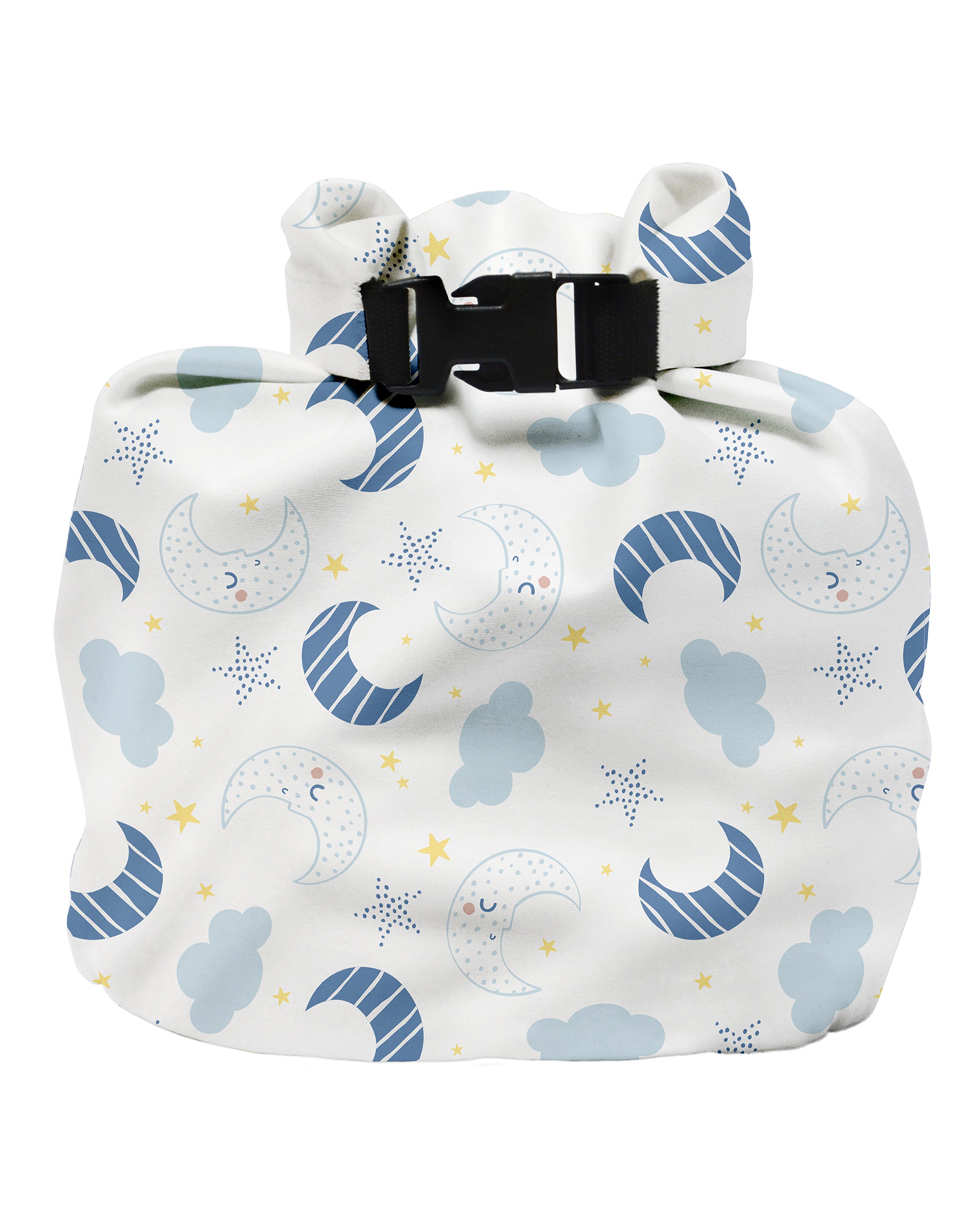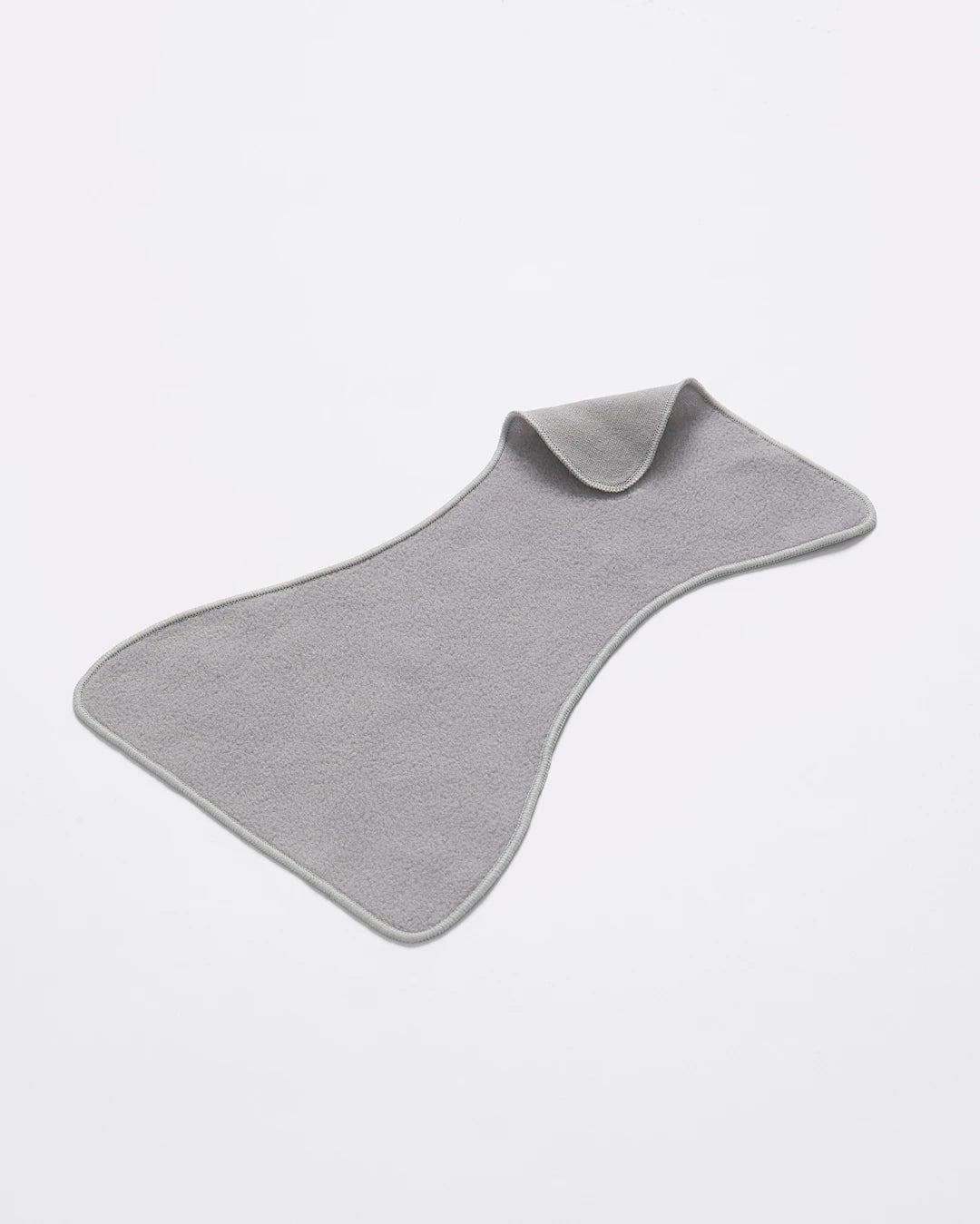Progesterone | Glossary of Pregnancy & Baby Term
Share Options
- Bambino Mio
- 24 / 07 / 2023
Inside this Article:
What is progesterone?
Your body contains various chemical messengers called hormones (1) and these hormones control and affect many bodily functions, such as sleeping and waking, digestion and your reproductive functions.
Progesterone (2) is one of the two female sex hormones and alongside the other, oestrogen (3), it regulates the menstrual cycle (4). Progesterone in particular is responsible for supporting and maintaining pregnancy.
Where does progesterone come from?
Your corpus luteum (5) - a temporary gland which your ovaries (6) produce after ovulation - produces progesterone. Your adrenal glands (7) and your placenta (8) also produce some progesterone.
Progesterone’s role in your menstrual cycle
In the middle of your menstrual cycle, you’ll experience a rise of luteinising hormone (LH) (9), which triggers ovulation (10), or the release of an egg from one of your two ovaries. Once the egg is released, your corpus luteum forms and starts to make progesterone.
Progesterone tells your body to prepare for pregnancy by stimulating your endometrium, or womb lining (11), to produce more blood vessels so it thickens, making it a good place for a fertilised egg to implant (12).
If your egg isn’t fertilised, your corpus luteum starts to break down, which lowers your progesterone levels and this drop causes the endometrium to break down. Your womb sheds this lining - which is your menstrual bleed or period (13).
Progesterone’s role in pregnancy
If your egg is fertilised then your corpus luteum stays around and carries on making progesterone, which causes your endometrium to thicken further and to provide nutrients to your tiny embryo.
When your placenta is fully formed it also produces progesterone and takes over as the main producer at around week 10 of pregnancy (14).
You need to maintain high levels of progesterone throughout pregnancy so that your womb lining stays thick and also so you don’t produce any more eggs. This amazing hormone also helps to trigger milk production.
Do men have progesterone too?
Yes, men also have progesterone. It’s made in their adrenal glands and helps with the production and development of sperm cells (15).
Citations and References
- National Institutes of Health (NIH). National Library of Medicine. ‘Physiology, Endocrine Hormones.’ www.ncbi.nlm.nih.gov/books/NBK538498
- National Institutes of Health (NIH). National Library of Medicine. ‘Physiology, Progesterone.’ 2023. Web. www.ncbi.nlm.nih.gov/books/NBK558960
- National Institutes of Health (NIH). National Library of Medicine. ‘Estrogen.’ 2022. Web. www.ncbi.nlm.nih.gov/books/NBK538260
- Cleveland Clinic. ‘Menstrual Cycle.’ 2022. Web. my.clevelandclinic.org/health/articles/10132-menstrual-cycle
- National Institutes of Health (NIH). National Library of Medicine. ‘Anatomy, Abdomen and Pelvis, Ovary Corpus Luteum.’ 2023. Web. www.ncbi.nlm.nih.gov/books/NBK539704
- National Institutes of Health (NIH). National Library of Medicine. ‘Anatomy, Abdomen and Pelvis, Ovary.’ 2022. Web. www.ncbi.nlm.nih.gov/books/NBK545187
- Healthline. ‘Adrenal Glands.’ 2017. Web. www.healthline.com/health/adrenal-glands
- National Institutes of Health (NIH). National Library of Medicine. ‘The Placenta: a Multifaceted, Transient Organ.’ 2015. Web. www.ncbi.nlm.nih.gov/pmc/articles/PMC4305167
- National Institutes of Health (NIH). National Library of Medicine. ‘Physiology, Luteinizing Hormone.’ 2022. Web. www.ncbi.nlm.nih.gov/books/NBK539692
- Cleveland Clinic. ‘Ovulation.’ 2022. Web. my.clevelandclinic.org/health/articles/23439-ovulation
- Medical News Today. What to Know About Endometrial Thickness.’ 2023. Web. www.medicalnewstoday.com/articles/327036
- Cleveland Clinic. ‘Conception.’ 2022. my.clevelandclinic.org/health/articles/11585-conception
- Cleveland Clinic. ‘Menstrual Cycle.’ 2022. Web. my.clevelandclinic.org/health/articles/10132-menstrual-cycle
- Science Direct. ‘Progesterone synthesis by the human placenta.’ 2004. Web. www.sciencedirect.com/science/article/abs/pii/S0143400404001705
- National Institutes of Health (NIH). National Library of Medicine. PubMed. ‘Effects of Progesterone on Sperm Function: Mechanisms of Action.’ 2000. Web. pubmed.ncbi.nlm.nih.gov/10928417




























